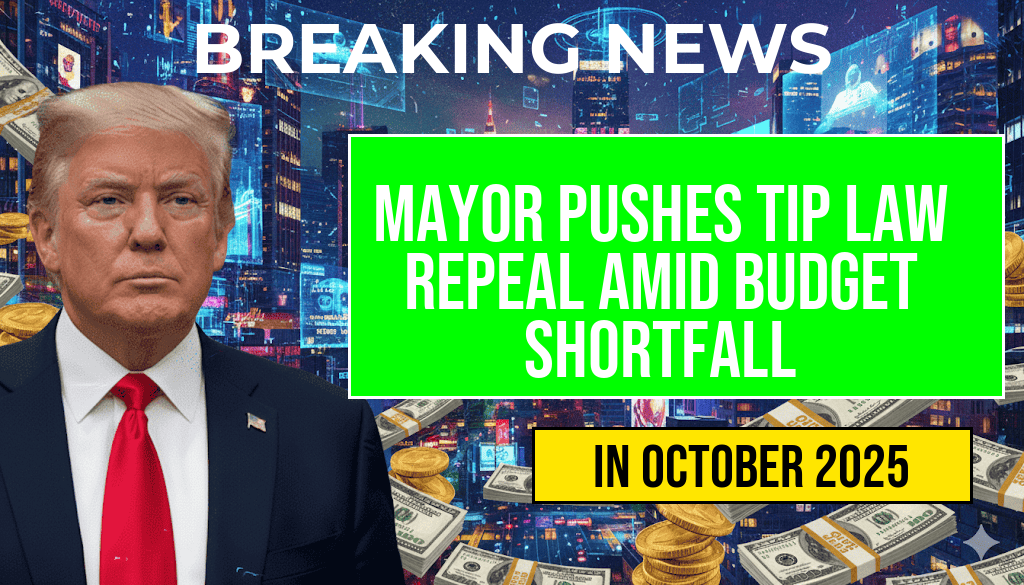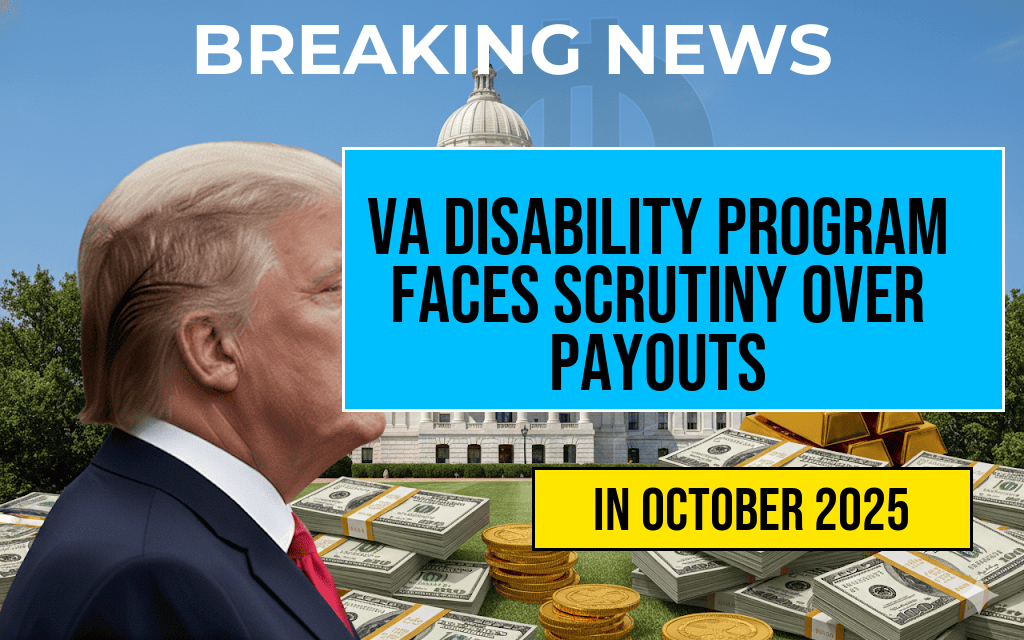In a bold move to address a staggering $1 billion budget shortfall, Mayor Jane Thompson is calling for the repeal of the city’s longstanding tip law, which has been a contentious topic among local businesses and workers alike. The mayor argues that eliminating the law will not only alleviate the fiscal crisis but also promote a more equitable wage structure for service industry workers. Currently, the tip law allows employers to pay lower base wages to employees in sectors where tipping is customary, leading to significant disparities in earnings. Thompson hopes that by advocating for this repeal, the city can create a more sustainable economic environment that supports all workers and generates additional tax revenue.
The Budget Crisis Explained
The city’s budget shortfall has been attributed to several factors, including a decline in tourism revenues, rising public service costs, and increased demand for social services. As the economy shifts, local leaders are grappling with how best to balance the budget while ensuring essential services remain intact. The mayor’s proposal to repeal the tip law is part of a broader strategy aimed at increasing wages and, consequently, tax contributions.
Current Implications of the Tip Law
Under the existing tip law, employers in the hospitality and service sectors are permitted to pay employees as little as $2.13 per hour, with the expectation that tips will make up the difference. This practice has come under scrutiny for several reasons:
- Income Instability: Workers often face unpredictable earnings, making it difficult to budget for basic living expenses.
- Disparities in Earnings: Employees in high-traffic areas or upscale establishments may earn significantly more than their counterparts in less frequented venues.
- Impact on Job Satisfaction: Workers reliant on tips may experience job dissatisfaction, leading to high turnover rates in the industry.
Potential Economic Benefits of Repeal
Thompson’s administration argues that repealing the tip law could yield several economic benefits:
- Increased Base Wages: By mandating higher base pay, workers would enjoy more predictable incomes, reducing financial stress.
- Boost in Consumer Spending: With higher wages, workers are likely to spend more, invigorating local businesses.
- Enhanced Tax Revenue: As income levels rise, the city could see an increase in tax revenue, helping to mitigate the budget shortfall.
Reactions from Stakeholders
The proposal has sparked a diverse array of reactions from stakeholders across the city. Restaurant owners express concern about the financial burden that higher wages would impose, fearing that it could lead to increased menu prices or reduced staffing levels. Conversely, labor advocates and service workers support the repeal, arguing that fair wages are essential for economic stability.
| Stakeholder Group | Position | Concerns/Support |
|---|---|---|
| Restaurant Owners | Opposed | Fear of increased operating costs |
| Service Workers | Supportive | Advocating for fair wages and income stability |
| Labor Unions | Supportive | Promoting worker rights and equitable pay |
| City Economists | Neutral | Concerned about potential unintended consequences |
Next Steps for the City Council
As the mayor’s proposal gains traction, the City Council is set to review the implications of repealing the tip law in the coming weeks. Public hearings will allow residents to voice their opinions, and economic studies will be conducted to assess the potential impact on local businesses and the workforce.
Looking Ahead
The discussion surrounding the tip law is emblematic of broader national conversations about wage equity and labor rights. As cities across the country grapple with similar issues, the outcomes of Thompson’s initiative could set a significant precedent. City residents and business owners alike are watching closely, as the decision could reshape the economic landscape of the city for years to come.
For more information on the current economic situation and the impact of wage laws, visit Forbes or explore comprehensive insights on minimum wage laws on Wikipedia.
Frequently Asked Questions
What is the proposed change regarding the tip law?
The mayor is advocating for the repeal of the tip law to help address a significant budget shortfall.
How much is the budget shortfall that the mayor is trying to address?
The budget shortfall is approximately $1 billion, which is prompting the mayor’s call for legislative changes.
Why is the repeal of the tip law considered a solution?
The repeal of the tip law is considered a potential solution because it may increase revenue for the city, helping to balance the budget.
What impact could the repeal of the tip law have on workers?
The repeal could have a significant impact on workers in the service industry, as they may lose the additional income provided by tips.
What are the next steps following the mayor’s advocacy?
The next steps involve discussions with lawmakers and stakeholders to evaluate the potential implications and to push for the proposed changes.








